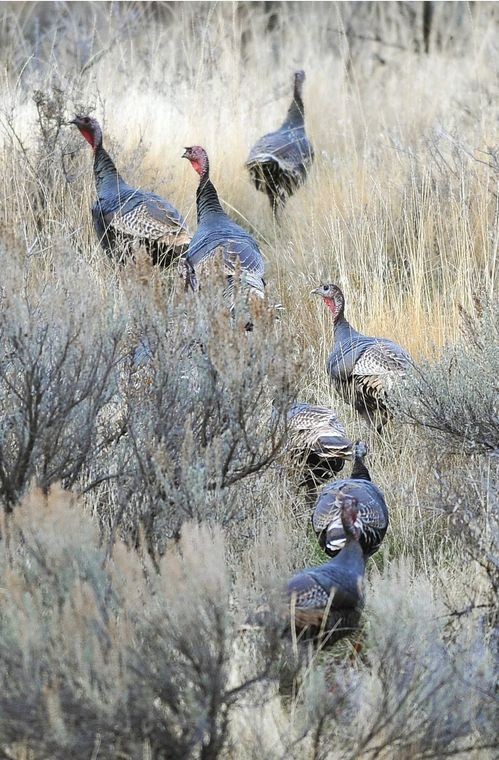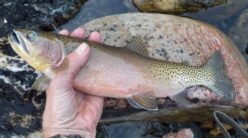Most folks dread April 15 — the usual annual filing date for state and federal taxes.
But if you are a sportsman or sportswoman who likes to get out for some spring hunting, April 15 this year marks the general season turkey opener. Here in Southeast Idaho, turkey hunters can enjoy general season hunts in several units through May 25.
There are three types of tags that may be used for turkey: general, extra and special unit tags.
A general tag is valid for spring and fall general hunt seasons. It can also be used during spring or fall controlled hunts with the purchase of a controlled hunt permit. If the general tag is not used to harvest a turkey in the spring, it may be used in fall seasons.
An extra tag is the second tag available in the spring. It is valid for spring and fall general hunt seasons. It cannot be used with a controlled hunt permit.
A special unit tag is valid for the fall season in Units 1, 2, 3, or 5. The special unit tag is also valid for any designated depredation hunt during the calendar year.
With that in mind, here are some final points to remember when choosing what tags to purchase and how to best use those tags for turkey hunting. If you plan on hunting in a spring general season AND would also like to apply for a fall controlled hunt, make sure you use your extra tag as your tag for your spring hunt and save that general tag to use if you draw on the fall controlled hunt.
Remember, your extra tag cannot be used in conjunction with a controlled hunt permit — it can only be used in general hunts. And there is nothing wrong with using your extra tag first for a general hunt, and saving your general tag just in case you draw for a controlled hunt.
Besides having the right licenses and tags for hunting, not to mention knowing the rules before you head out to the field, there are some basic turkey hunting safety rules and etiquette to which all hunters should pay attention — especially in regards to private property.
ASK FIRST! Per Idaho Code 36-1603, no person may enter private land to hunt, fish, trap or retrieve game without permission if the land is:
- Cultivated,
- OR posted with “No Trespassing” or similar signage every 660 feet (1/8th mile) or at all reasonable access points,
- OR posted with 100 square inches of high visibility orange paint every 660 feet or all reasonable access points,
- OR posted with high visibility orange paint on the top 18 inches of a metal fence post every 660 feet or all reasonable access points,
- OR Posted with signs where a public road enters and leaves property through or along which the public has a right-of-way.
Being respectful of private property whether you are granted access or not is critical if hunters wish to develop and maintain good relationships with landowners, especially those who allow access to their properties. Many landowners are sportsmen themselves and enjoy contributing to Idaho’s hunting legacy by saying “yes” to access. But no one can blame a landowner for being frustrated or angry with trespassers, vandals and those who exhibit other forms of misbehavior on their properties.
When hunting turkeys, there are some basic safety steps everyone should follow.
- Positively identify your target.
- Assume every noise and movement is another hunter.
- Never stalk a turkey or turkey sound.
- Don’t wear red, white or blue (the colors found on the head and neck of tom turkeys).
- Shout “Stop” to alert approaching hunters.
- Make your position known to other hunters.
- Preselect a zone of fire.
- Choose safe, ethical hunting companions.
- Practice courtesy and self-control at all times.
In addition to hunting in a safe and responsible manner, all ethical wild turkey hunters support a series of rules that make wild turkey hunting the quality experience it can be. Following these rules will not only help maintain healthy flocks of wild turkeys in Idaho, but will also add to the challenge and excitement that is wild turkey hunting.
- Do not disturb nesting hen turkeys or their nests.
- Though it is legal (during legal hours) to shoot a turkey out of a roost tree, this practice is unacceptable among most sportsmen and sportswomen.
- If you hear another hunter calling a bird, allow that hunter to continue undisturbed and leave the area.
- And it can’t be stated enough: ask first to hunt on private land and be sure to thank those landowners who grant you access.
Jennifer Jackson is the Regional Conservation Educator for the Idaho Department of Fish and Game, southeast region.



